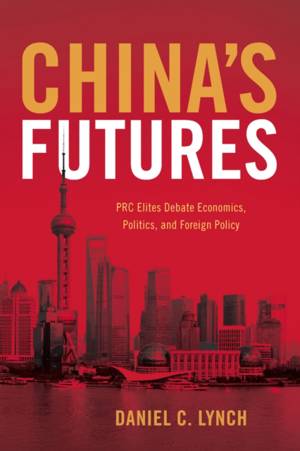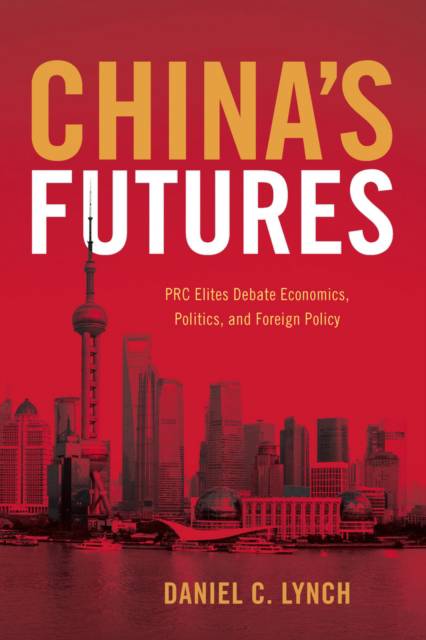
- Afhalen na 1 uur in een winkel met voorraad
- Gratis thuislevering in België vanaf € 30
- Ruim aanbod met 7 miljoen producten
- Afhalen na 1 uur in een winkel met voorraad
- Gratis thuislevering in België vanaf € 30
- Ruim aanbod met 7 miljoen producten
Zoeken
China's Futures
PRC Elites Debate Economics, Politics, and Foreign Policy
Daniel C Lynch
Paperback | Engels
€ 51,95
+ 103 punten
Uitvoering
Omschrijving
China's Futures cuts through the sometimes confounding and unfounded speculation of international pundits and commentators to provide readers with an important yet overlooked set of complex views concerning China's future: views originating within China itself. Daniel Lynch seeks to answer the simple but rarely asked question: how do China's own leaders and other elite figures assess their country's future? Many Western social scientists, business leaders, journalists, technocrats, analysts, and policymakers convey confident predictions about the future of China's rise. Every day, the business, political, and even entertainment news is filled with stories and commentary not only on what is happening in China now, but also what Western experts confidently think will happen in the future. Typically missing from these accounts is how people of power and influence in China itself imagine their country's developmental course. Yet the assessments of elites in a still super-authoritarian country like China should make a critical difference in what the national trajectory eventually becomes. In China's Futures, Lynch traces the varying possible national trajectories based on how China's own specialists are evaluating their country's current course, and his book is the first to assess the strengths and weaknesses of "predictioneering" in Western social science as applied to China. It does so by examining Chinese debates in five critical issue-areas concerning China's trajectory: the economy, domestic political processes and institutions, communication and the Internet (arrival of the "network society"), foreign policy strategy, and international soft-power (cultural) competition.
Specificaties
Betrokkenen
- Auteur(s):
- Uitgeverij:
Inhoud
- Aantal bladzijden:
- 350
- Taal:
- Engels
Eigenschappen
- Productcode (EAN):
- 9780804794190
- Verschijningsdatum:
- 11/03/2015
- Uitvoering:
- Paperback
- Formaat:
- Trade paperback (VS)
- Afmetingen:
- 150 mm x 226 mm
- Gewicht:
- 458 g

Alleen bij Standaard Boekhandel
+ 103 punten op je klantenkaart van Standaard Boekhandel
Beoordelingen
We publiceren alleen reviews die voldoen aan de voorwaarden voor reviews. Bekijk onze voorwaarden voor reviews.








